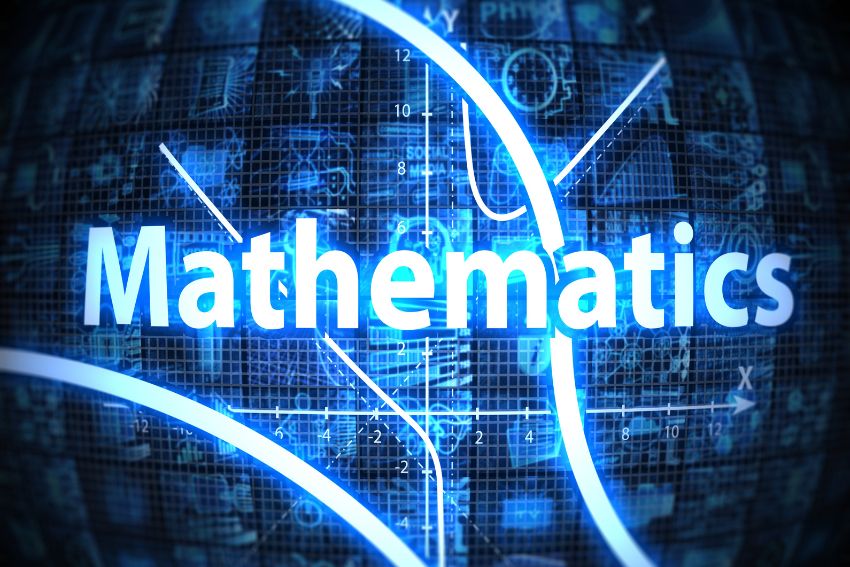What Are The Hardest GCSE Subjects?
When it comes to GCSEs, students must balance both compulsory subjects and optional choices, though not all subjects are created equal in the eyes of students. While each subject has its own challenges, some are widely seen as more demanding than others. Factors like the amount of content, complexity of topics, and the style of assessment all play a role. Further Maths GCSE, for example, is often considered one of the hardest due to its advanced content.
This perception of difficulty can be influenced by individual strengths, teaching styles, and even the resources available for study. Similarly, for students taking international qualifications, understanding IGCSE grade boundaries for 2025 is important for setting realistic goals and measuring performance in these challenging subjects. In this article, we’ll explore why some GCSE subjects earn the title of “hardest” and examine the key factors that contribute to the challenging nature of these subjects.
| Subject | Total Entries | Pass Rate (Grade 4/C or above) | Percentage Achieving Grade 9 |
|---|---|---|---|
| Mathematics | 842,595 | 59.5% | 5.0% |
| Physics | 174,745 | 98.0% | 44.0% |
| Chemistry | 174,750 | 97.8% | 44.7% |
| English Literature | 623,610 | 73.7% | 5.0% |
| Modern Foreign Languages (MFL) | 325,700 | 72.8% | 7.8% |
| History | 312,415 | 63.9% | 25.8% |
| Computer Science | 93,985 | 68.3% | 28.3% |
| Biology | 183,370 | 96.5% | 42.0% |
| English Language | 807,785 | 61.6% | 5.0% |
| Economics | 25,000 | Data not specified | Data not specified |
1. Further Mathematics

The difficulty of Further Mathematics stems from the advanced level of content it covers and the exam structure that demands proficiency across complex topics like calculus, advanced algebra, and trigonometry. Unlike standard Maths, this subject often includes problem-solving questions that require logical reasoning and a deep understanding of mathematical principles.
The exam format typically combines multiple-choice questions, structured problem-solving, and longer written responses where students must explain complex calculations. Grade distributions in Further Maths tend to be skewed toward higher-performing students, as this subject is usually taken by those with a strong mathematical foundation. However, the subject’s pass rate reflects the challenges students face in grasping intricate concepts under exam pressure, making it one of the hardest GCSE subjects.
Reasons for Difficulty: Further Maths is an extension of the standard Maths GCSE, covering more advanced topics that delve into complex algebra, calculus, and trigonometry.
Challenges: This subject is particularly challenging because it requires a deep understanding of mathematical concepts and is often fast-paced. Students must solve complex problems and make quick calculations under timed exam conditions.
2. Physics

Physics is known for its challenging exam structure, requiring both strong mathematical skills and a grasp of scientific concepts. Exams in Physics often mix multiple-choice questions with data analysis, problem-solving, and open-ended questions that test theoretical understanding.
Many students struggle with abstract concepts like electromagnetism or quantum theory, which require both memorization and application skills. Grade distributions in Physics reveal a wide range, with high pass rates generally seen among students with strong analytical abilities, while lower pass rates reflect the hurdles faced by those who find the subject’s abstract and mathematical demands challenging.
Reasons for Difficulty: Physics demands a strong grasp of mathematical concepts, especially when tackling challenging topics of Pysics, and the ability to understand and apply theoretical principles to real-world scenarios.
Challenges: Visualizing abstract concepts like forces, energy, and electromagnetism can be difficult, as can solving complex equations. Many ask, “Which science is the hardest?” Physics often tops the list due to its combination of maths and conceptual demands. Physics exams often test students’ ability to interpret data and diagrams accurately and to solve problems using complex formulas.
3. Chemistry

Chemistry exams test both theoretical knowledge and practical application, with a particular focus on chemical calculations and the understanding of chemical reactions and bonding. The exam structure includes a mix of multiple-choice, short answer, and extended-response questions.
Students must quickly switch between skills, like applying formulas, interpreting data, and recalling chemical properties. Chemistry typically has a moderate pass rate, with students finding practical questions involving calculations harder than memorisation-based ones. This indicates the difficulty of achieving a strong grade without both robust knowledge and applied understanding.
Reasons for Difficulty: Chemistry combines theoretical concepts with mathematical calculations, covering a wide range of topics from atomic structure to chemical reactions.
Challenges: Students face the challenge of understanding intricate details, such as the periodic table, chemical bonding, and stoichiometry. The exams test both memorization of key facts and the ability to apply concepts to novel scenarios.
4. English Literature

English Literature exams test analytical and interpretive skills, often through long-form essay questions. Students analyze themes, characters, and language in literature, which demands both in-depth knowledge and critical thinking.
The exam often includes sections that test recall of quotes, literary analysis, and comparative essays, all within strict time constraints. The grade distribution in English Literature tends to show a concentration of mid-range scores, reflecting the challenge students face in crafting well-supported arguments under pressure. Lower pass rates in this subject often correlate with the difficulty of mastering both essay-writing and deep text analysis.
Reasons for Difficulty: This subject involves deep analysis of literary texts, requiring students to understand themes, character motivations, and literary techniques.
Challenges: English Literature requires students to develop strong essay-writing skills, memorize quotations, and analyze complex passages within a limited time frame. Constructing well-argued responses that effectively communicate interpretations can be particularly demanding.
5. Modern Foreign Languages (e.g., French, Spanish, German)

The exam structure for Modern Foreign Languages is comprehensive, covering reading, writing, listening, and speaking. This combination requires students to be well-rounded in their language skills, often switching between different tasks in a single exam. Speaking exams, for example, can be intimidating due to time limits and the need for on-the-spot responses.
The grade distribution in languages typically shows a significant gap between students who have had consistent exposure and practice versus those who haven’t, with lower pass rates among those who struggle to adapt to the multi-skill requirements. The challenging nature of language retention and spontaneous application contributes to the subject’s reputation for difficulty.
Reasons for Difficulty: Foreign language GCSEs test reading, writing, listening, and speaking skills, which require consistent practice and familiarity with the language’s grammar and vocabulary.
Challenges: Pronunciation, quick thinking in conversation, and recalling vocabulary are common hurdles. The exams often involve translating complex passages and composing responses with correct grammar, demanding high levels of language proficiency.
6. History

History exams challenge students with their requirement for extensive memorization and analytical writing. Students must retain knowledge of dates, events, and historical figures, and use this information to construct persuasive arguments in essay form.
The exam includes source-based questions and long-form essays, testing students’ skills in evaluating historical perspectives and forming arguments. History grades often cluster around the average, with lower pass rates for those who struggle with both factual recall and argument structure.
Reasons for Difficulty: History requires extensive memorization of dates, facts, and events, as well as the ability to analyze sources and form persuasive arguments about historical interpretations.
Challenges: This subject involves understanding and evaluating various historical perspectives, recalling precise details, and structuring answers with clear evidence. Many ask, “Is History GCSE hard?” The answer is yes for students who struggle with factual recall and essay structure. The exams require strong writing skills and the ability to craft coherent arguments under timed conditions.
7. Computer Science

Computer Science exams blend theory and practical skills, covering topics like programming, algorithms, and data representation. The exam format includes coding problems, multiple-choice questions, and theoretical questions that require students to explain abstract concepts in computing.
The logical and problem-solving nature of programming poses a challenge, especially for students who are new to the subject. Grade distribution in Computer Science often highlights the divide between students who excel at problem-solving and those who struggle with coding, with pass rates lower among those who find computational thinking difficult to master under time constraints.
Reasons for Difficulty: Computer Science combines theoretical and practical elements, covering topics like programming, algorithms, and data representation.
Challenges: The logical thinking and problem-solving skills required for programming can be challenging, especially for students new to coding. Additionally, understanding abstract concepts such as binary systems and computational thinking can require extensive practice and patience.
8. Biology

Biology exams assess students’ knowledge of cellular processes, ecosystems, and human anatomy through a combination of multiple-choice, short-answer, and data analysis questions. It often requires a high level of memorization, particularly of terminology and processes.
The exam structure also tests application skills, such as interpreting graphs or data sets. Grade distributions in Biology are usually even, but pass rates can drop for students who struggle with memorization and application. The subject’s focus on both recall and practical understanding makes it one of the most challenging GCSE sciences.
Reasons for Difficulty: Biology involves a wide range of topics, from cellular processes to ecosystems, requiring strong memorization skills and the ability to understand complex biological systems.
Challenges: Students often struggle with the extensive terminology and intricate processes (e.g., photosynthesis, respiration). The exams test knowledge of factual content and the ability to apply concepts to unfamiliar biological scenarios.
9. English Language

English Language exams are structured to test comprehension, critical analysis, and creative writing skills. The exam typically includes reading passages where students must analyze language and structure, as well as writing prompts that test originality and clarity.
The challenge for many students is in quickly analyzing text and formulating coherent, engaging responses within a limited timeframe. Grade distributions often show mid-range scores, with higher pass rates for students who excel in writing, while lower scores tend to reflect difficulty with comprehension and analysis under pressure.
Reasons for Difficulty: English Language focuses on reading comprehension, creative writing, and textual analysis. Students must understand and analyze different writing styles and develop clear, effective writing.
Challenges: English Language exams test skills in constructing coherent responses, analyzing language use, and creating original content within a limited timeframe. Students must demonstrate a strong command of grammar, vocabulary, and structure.
10. Economics

Economics exams combine theoretical questions with real-world application, covering topics like supply and demand, economic policies, and market structures. The structure typically includes both multiple-choice and extended-response questions that require students to apply concepts to current economic situations.
Students must understand and analyze data, construct arguments, and write structured essays. Grade distributions show that high scores go to students who combine analytical and evaluative skills. Lower pass rates highlight the difficulty of applying economic theory to practical contexts.
Reasons for Difficulty: Economics combines theoretical knowledge with real-world applications, covering topics such as supply and demand, market structures, and economic policy.
Challenges: Students must understand complex theories and apply them to current economic issues. The exams often require interpreting data, constructing arguments, and writing structured responses, demanding both analytical and evaluative skills.
How Tutors Can Help
Edumentors’ expert tutors provide one-on-one guidance, breaking down tough GCSE concepts and tailoring lessons to individual needs. They help students master challenging gcse subjects like Maths, Physics, or English. While this article focuses on the most difficult subjects, students may also want to balance their course load by including some easiest GCSE subjects to create a more manageable academic schedule and maximize their overall performance.
FAQ’s
Which GCSE language is the hardest?
The perceived difficulty of a GCSE language often varies based on a student’s native language, prior exposure, and linguistic aptitude. However, commonly, students find languages like Mandarin Chinese and Japanese to be among the hardest due to their complex writing systems and significant grammatical differences from English.
Languages that use the Latin alphabet, like Gcse French, Spanish, and German, might be seen as easier for English speakers to learn. Ultimately, the challenge of a language can be subjective and greatly depends on the individual learner’s background and their effort in mastering the language.
What is the least chosen GCSE?
The least chosen GCSE subjects tend to be those that are more niche or specialised. According to recent trends, subjects like Classical Greek, Environmental Science, and Electronics often see lower enrolment numbers compared to more mainstream subjects like Maths, English, and the Sciences. These subjects might be less chosen due to limited availability in schools, specific career interests, or less awareness among students and parents about the opportunities they offer.
The least chosen GCSE subjects tend to be those with the smallest number of entries. In recent years, subjects like Citizenship Studies have seen a decrease in entries, with about 20,790 students taking it in 2024, a drop from previous years. Additionally, smaller subjects like Classical Greek and other less commonly studied languages often have fewer students enrolled compared to more popular subjects
Resourses of statistics:
tes.com
Which is the easiest GCSE?
The perception of which GCSE subjects are the easiest can vary significantly among students, depending on their strengths, interests, and learning styles. However, some subjects are often considered easier due to factors like coursework components, practical assessments, or less rigorous memorisation requirements.
For instance, subjects like Physical Education and Drama are frequently mentioned as easier by students because they include practical assessments and are engaging in ways that align with the students’ interests and activities outside the classroom. Physical Education, with its mix of practical and theoretical elements, is often seen as more accessible because it involves activities that students might already be familiar with and enjoy
Similarly, subjects like Design and Technology and Food Preparation & Nutrition are noted for their practical components, which allow students to engage directly in hands-on activities, making the learning process more interactive and relatable. These subjects often involve projects or practical work, which can be easier for students who thrive in more creative and less exam-centric environments
Geography is also frequently listed among the easier GCSE subjects. It is considered straightforward by many students due to its combination of physical and human elements and the real-world application of the content, which can be more tangible and engaging compared to more abstract subjects
It’s important to note that the ease of a subject will depend on personal preferences and abilities. It’s advisable for students to choose subjects that they are passionate about or have a natural inclination towards, as this often leads to better engagement and results.
What is the hardest GCSE board?
Determining the “hardest” GCSE exam board can be subjective and often depends on the specific subject and a student’s personal strengths and learning style. However, based on various student experiences and perceptions, Edexcel is often cited as one of the most challenging exam boards, particularly for STEM subjects like Maths and Sciences. This is because Edexcel exams typically include multi-step problems that require a deeper understanding and application of concepts
For subjects like English Literature and Language, WJEC Eduqas has been noted to have the lowest pass rates, suggesting it might be more challenging compared to other boards .In contrast, OCR is known for its rigorous and academically challenging questions, especially in humanities and essay-based subjects such as History and English Literature
Ultimately, the perceived difficulty of an exam board can vary greatly among students, and what might be challenging for one student could be more straightforward for another. It’s essential to consider your personal strengths and learning preferences when evaluating the difficulty of exam boards.
What is the hardest subject to get a 9 in?
Achieving a grade 9 in GCSE subjects is notably challenging due to the high standards required. According to data and student experiences, subjects like Combined Science GCSE, English Language, and GCSE Further Mathematics are among the hardest to score a grade 9 in. GCSE Combined Science, for example, shows that only a small percentage of students achieve the highest marks, indicating its difficulty level across various exam boards
GCSE Further Mathematics also stands out as particularly tough. This subject goes beyond the standard Maths GCSE syllabus, including advanced topics such as differentiation, binomial expansion, and matrices. These topics typically appear in A-Level studies, which adds to the challenge for students. The rigorous content demands a strong grasp of complex mathematical concepts, making it one of the hardest for achieving top grades
For those seeking to excel in these subjects, focusing on understanding the fundamental principles, consistent practice, and utilising resources like past papers and revision guides are crucial strategies. Engaging with educational resources like BBC Bitesize and other subject-specific tutoring can also provide significant support








